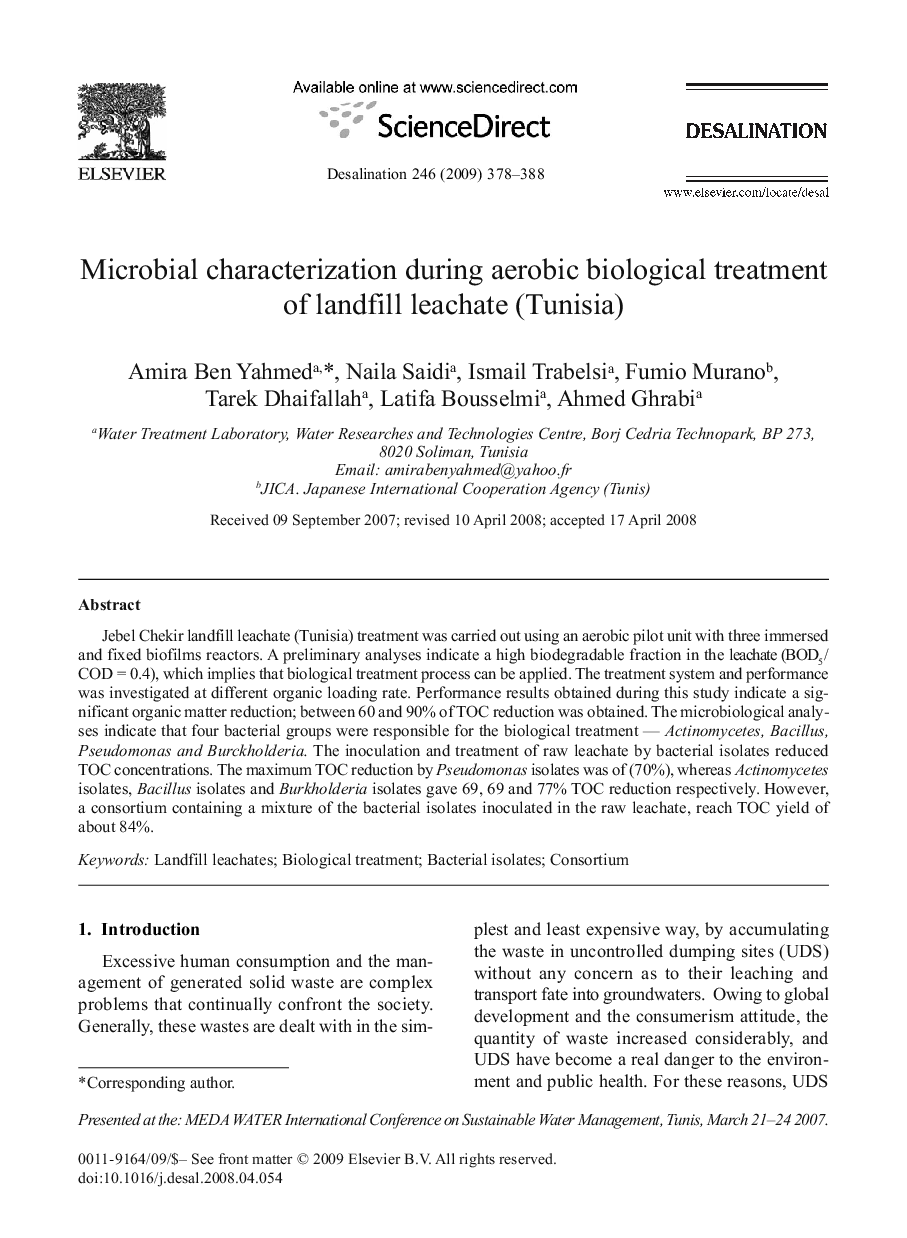| Article ID | Journal | Published Year | Pages | File Type |
|---|---|---|---|---|
| 626670 | Desalination | 2009 | 11 Pages |
Jebel Chekir landfill leachate (Tunisia) treatment was carried out using an aerobic pilot unit with three immersed and fixed biofilms reactors. A preliminary analyses indicate a high biodegradable fraction in the leachate (BOD5/COD = 0.4), which implies that biological treatment process can be applied. The treatment system and performance was investigated at different organic loading rate. Performance results obtained during this study indicate a significant organic matter reduction; between 60 and 90% of TOC reduction was obtained. The microbiological analyses indicate that four bacterial groups were responsible for the biological treatment — Actinomycetes, Bacillus, Pseudomonas and Burckholderia. The inoculation and treatment of raw leachate by bacterial isolates reduced TOC concentrations. The maximum TOC reduction by Pseudomonas isolates was of (70%), whereas Actinomycetes isolates, Bacillus isolates and Burkholderia isolates gave 69, 69 and 77% TOC reduction respectively. However, a consortium containing a mixture of the bacterial isolates inoculated in the raw leachate, reach TOC yield of about 84%.
